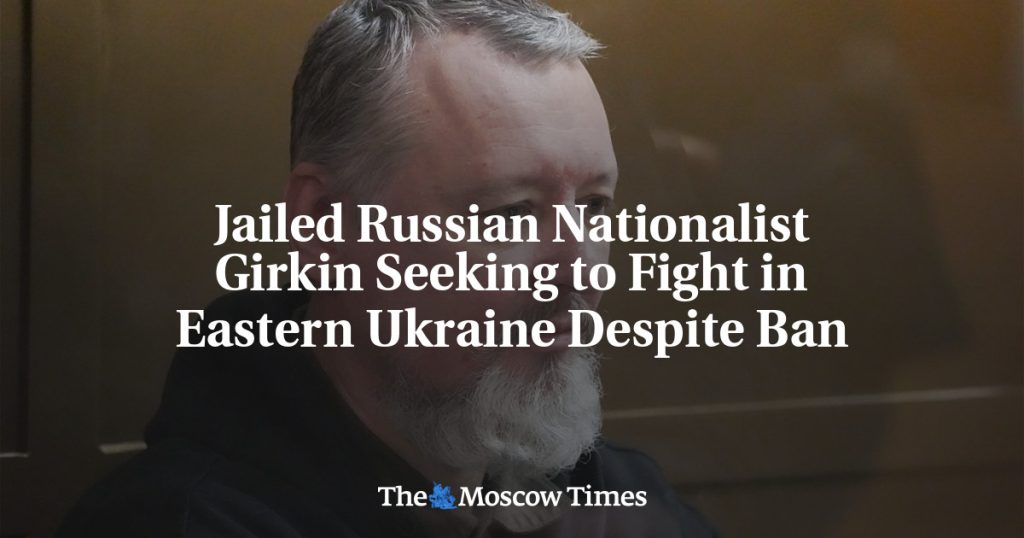Igor Girkin, also known as Igor Strelkov, is a convicted war criminal in the West who was sentenced to four years in prison for inciting extremism. He has expressed a desire to clear his criminal record and return to the frontline in eastern Ukraine. His wife, Miroslava Reginskaya, revealed that a military unit in the self-proclaimed Donetsk People’s Republic approved his candidacy to serve as a platoon commander in January. Despite a new recruitment rule signed by Russian President Vladimir Putin that prohibits individuals convicted of extremism and other serious crimes from joining the military, Girkin’s lawyer believes there is still a legal opportunity for him to avoid the ban through an appeal court or presidential pardon.
The decision to send Girkin to prison on political charges of extremism has been criticized by his wife, who believes that it was a mistake to prevent an officer and patriot with unique military experience from serving on the front line during a severe military conflict. The prospects of Girkin being able to return to the battlefield and expunge his criminal record remain unclear, with his next appeal hearing scheduled for May 15. Girkin gained notoriety for his role in commanding a pro-Russian separatist militia in eastern Ukraine in 2014 and playing a key role in the annexation of Crimea. He was also sentenced in absentia by a Dutch court to life in prison for his involvement in the downing of Malaysia Airlines flight MH17 in 2014, which resulted in the deaths of all 298 people on board.
Despite his criminal record and previous convictions, there is still a possibility that Igor Girkin may be able to continue his military service in Ukraine if legal avenues such as an appeal court decision or a presidential pardon are successful. The new recruitment rule signed by Russian President Vladimir Putin prohibits individuals convicted of extremism and other serious crimes from joining the military, but Girkin’s lawyer remains optimistic about his chances of avoiding the ban. His wife has criticized the decision to send him to prison, arguing that his unique military expertise and experience should not be wasted during a time of severe military conflict in the region. The situation surrounding Girkin’s future military service and criminal record remains uncertain pending his upcoming appeal hearing.
The case of Igor Girkin, also known as Igor Strelkov, highlights the complexities and challenges faced by individuals with criminal records seeking to serve in the military during times of conflict. Despite his previous convictions for inciting extremism and other serious crimes, Girkin’s desire to return to the frontline in eastern Ukraine has sparked discussions about the legal avenues available to him, including the possibility of an appeal court decision or a presidential pardon. His role in commanding a pro-Russian separatist militia in 2014 and involvement in the downing of Malaysia Airlines flight MH17 have added further complications to his situation, with a Dutch court sentencing him in absentia to life in prison for his actions.
The legal and political implications of Igor Girkin’s case raise questions about the balance between justice, security, and military service during times of conflict. The decision to prevent individuals convicted of extremism and other serious crimes from joining the military under a new recruitment rule signed by Russian President Vladimir Putin adds another layer of complexity to Girkin’s situation. His wife’s criticism of the authorities for sending him to prison instead of allowing him to serve on the front line highlights the broader debate surrounding the utilization of individuals with unique military expertise and experience, even if they have a criminal record. The outcome of Girkin’s upcoming appeal hearing and the possibility of him clearing his criminal record to continue his military service remain uncertain, raising ethical and legal questions about military recruitment and service in conflict zones.


